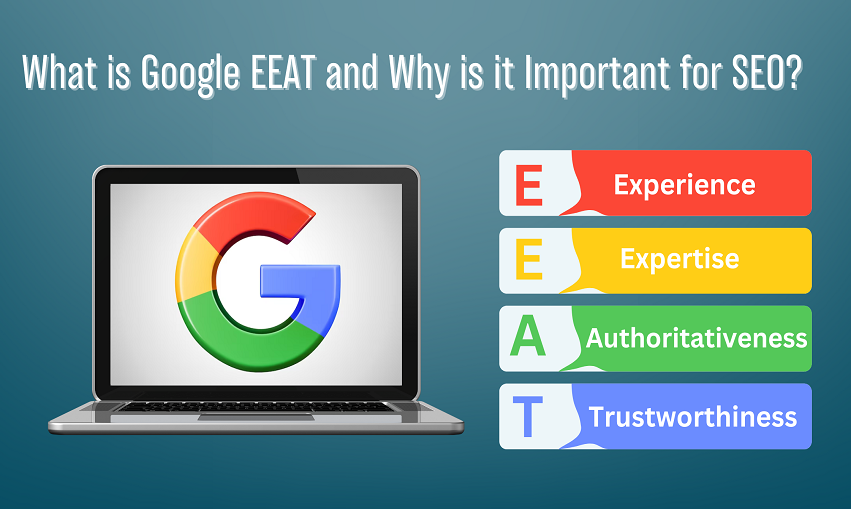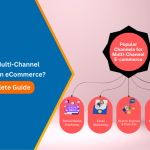If you are a business owner or a professional SEO agency looking to boost your search engine rankings, Understanding Google’s EEAT principles is crucial for business owners and professional SEO agencies aiming to improve their search engine rankings and succeed online by being listed on Google.
The E-E-A-T acronym stands for Expertise, Authoritativeness, Trustworthiness, and User Experience—these are the four key factors considered by Google while evaluating and ranking websites. In this blog, we will shed light on EEAT, its relevance in SEO, and how to get listed on Google by optimizing your website to meet Google’s strict criteria and outperform your competition.
What’s E-E-A-T?
E-E-A-T Experience, Expertise, Authority, and Trustworthiness. This was revealed when Google published the 2013 Google Search Quality Rater Guidelines online. It aimed at helping webmasters figure out which of Google’s recommendations mattered most regarding a webpage ranking well. Then in December 2022, “Experience” was incorporated as another element into this concept by Google. As a result, today, using this E-E-A-T approach is one of the main ways of gauging how good a page is.

See How Our Experts Can Drive More Traffic to Your Website!
SEO: Boost your rankings and drive more organic traffic today!
Website Design/Development: Create a stunning website that converts visitors into customers.
Paid Media: Reach the right audience at the right time with expertly managed paid media.
Why Does Google Care about E-E-A-T?
Sites that pay greater attention to E-E-A-T tend to rank higher in search queries than those with poor content quality that is practically invisible. Therefore, understanding how each aspect of web page rating works, including Google E-E-A-T, is crucial. On that note, let us see how we can get listed on Google using the principles of E-E-A-T:
1. Experience
There is nothing as authentic and credible as real-world practical experience when it comes to creating content. As you have been browsing the internet, there must be several thoughts: does the writer have any real-life firsthand experience on what they are writing about? For instance, did the person actually use the product or service if they left a review? Did they cook the food before posting the recipe? Often times expertise in a subject matter may be easier to get than authority or competence. So make sure you include these direct customer experiences on your site.
2. Expertise
In comparison with “Authority,” which assesses who created it, “Expertise” mainly considers what was created.
This identifies information made by individuals who have knowledge in this area. This may involve presenting formal qualifications like degrees, certificates, and licenses achieved by such people or sharing relevant personal experience and day-to-day knowledge concerning this topic.
For example, rewiring advice from a licensed electrician will be better than advice from an amateur home user who does not know how to wire electrical circuits.
3. Authoritativeness
Authoritativeness is what it is called when one becomes a reliable source of information that experts and important people trust or rely on. This means that others see you or your website as authoritative, which translates to them believing that you can be relied upon to provide accurate information about something. It is like being the person who knows everything about the topic, and everyone looks up to them.
Assessors look up information about the website’s reputation for authority. They seek sources not created by the site, company, or individual.
For instance, passport renewal is exclusively offered via the government passport office webpage, which is authorized. This serves as a reminder to other sites of places, referred to as websites, under official law where valid passports can be obtained.
4. Trustworthiness
Authenticity, transparency, and truthfulness define the trustworthiness of a website and its information. Trust is the most critical member of the E-E-A-T family because untrustworthy websites have low E-E-A-T regardless of how experienced, competent, or authoritative they appear.
Evaluators look into several things to determine credibility. For example, they establish if the website identifies responsible persons for published content. They also ensure that enough contacts are provided, especially for online sellers. Moreover, reviewers examine whether the materials are accurate and cite their sources correctly.
Implementing E-E-A-T into Your Content Strategy
For effective integration of E-E-A-T into your content strategy to enhance its influence on SEO, follow these best practices:
-
Establish Author Credentials:
It is essential to demonstrate credibility either through the author’s impressive bio notes or by having guest articles from professionals in relevant industries.
-
Work with Experts in the Field:
For example, you can invite famous people or well-known individuals who have a lot of followers to post an article on your blog or interview them, etc. This way, your site will become more authoritative and trustworthy.
-
Facilitate User Feedback and Recommendations:
Reviews from users are valuable because they give proof that a service is genuine. So encourage your satisfied customers to say something about you on their sites or third-party resources. Besides this, it indicates how much you value customer satisfaction and openness above everything else.
-
Ensure Transparency and Reliability:
With respect to E-E-A-T principles, one has to be honest and transparent while creating trustworthy content. Provide clear attribution of any information used together with business/website contact details, and support all claims indicating credible sources/expert opinions.
-
Online Reputation Tracking and Management:
A reliable image that demonstrates authority also implies good online reputation monitoring. This means that one should always check what viewers say about their Seattle SEO company on places like Twitter and Facebook.
-
Frequently Update Current Content:
Using outdated material could make your website look like it is not updated as soon as new information becomes available, thus affecting its expertness and credibility; therefore, review old content pieces from time to time since there might be slight changes observed.
-
Discourage Deceptive Strategies and Clickbaiting:
Do away with clickbait headlines, extreme exaggerations, or anything deceptive that would erode E-E-A-T since trustworthiness relies on transparency and honesty, with accuracy as the main elements here. Incorporating E-E-A-T into an SEO strategy enables search engine optimization of content that will bring faster results, better engagement, and higher rankings because customers will trust your brand more. Consequently, webpage optimization from an SEO point of view and for end-users is necessary to ensure topmost placement in SERPs.
Parting Thoughts
As a Seattle SEO company, you must follow Google E-E-A-T guidelines. These rules are essential for SEO and have a great impact on how good or bad any website is in terms of its content. Optimizing websites for search engines is important, but even more crucial is optimizing them for end users who require credible sources of information.
To boost your website’s performance and ensure it meets E-E-A-T principles for maximum exposure and trustworthiness, you can work with a professional SEO agency such as Icecube Digital. Our team of SEO gurus are experts in developing techniques that will not only escalate your rankings on search engines but also improve the general quality and credibility of your online presence. Log into our website now to check out how we could improve your SEO approach.






